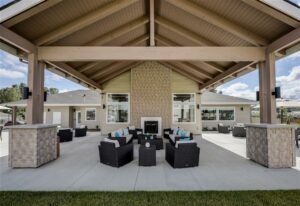Tacoma, Washington Independent Living: Search Near You, How To Pay, Licensing, Local Resources, and Questions To Ask
Tacoma, home of the University of Washington, is a vibrant and active city that attracts art and outdoor enthusiasts. Tacoma is a great place to start your search for independent living. Facilities in this area could accept State Medicaid, private payers and long-term care insurance.
CareAvailability.com has been used by families and care professionals in the Tacoma area to find real-time independent living openings and provide a comprehensive list of options for care.
We do all the work for you when it comes to finding the best memory care in and around Salem. We do extensive research on the facilities and provide you with the most current information and care availability.

About Independent Living In Tacoma, WA
Independent living communities in Tacoma offer a wide range of services and amenities for people over the age of 60. Living in an independent living community is best described as a communal living settings with others who are retired. You’ll find that social gatherings and outings are common along with provided communal dining meals and housekeeping.
Considerations when looking for care in Spokane, Washington
Tacoma, located in the heart of Pierce County Washington, is a beautiful city at the edge of Puget Sound just south of Seattle. Tacoma has a population of about 225,000 residents with a senior population of about 8.5% total. This makes Tacoma a great place for aging folks to relax and enjoy the beautiful views and with a great selection of companies offering senior care.
Independent Living Communities near Tacoma, Washington

The Village Senior Living
Tacoma, Washington 98466

Franke Tobey Jones
Tacoma, Washington 98407

The Lakeshore Retirement Community – Era Living
Seattle, Washington 98178

Heron's Key
Gig Harbor, Washington 98332
Larc At Burien
Burien, Washington 98168

Larc Of Kent
Kent, Washington 98032
Island House – Mbk Senior Living
Mercer Island, Washington 98040

Gencare Lifestyle The Lodge At Eagle Ridge
Renton, Washington 98055

Gencare Lifestyle Federal Way
Federal Way, Washington 98003

Gencare Lifestyle At Point Ruston
Tacoma, Washington 98407
Cities near Tacoma, Washington with Independent Living
- University Place, WA.
- Lakewood, WA.
- Parkland, WA.
- Edgewood, WA.
- Federal Way, WA.
- Puyallup, WA.
- Sumner, WA.
- Spanaway, WA.
How To Pay for Independent Living
Paying for Independent Living, what resources are available to help?
Private Funds- YES: Most families pay for independent living with private funds. Private pay can be a combination of retirement funds, personal savings, and pension payments. Family members may also contribute funds toward a loved one’s care.
Tax Credit, section 202, HUD housing -MAYBE:
- Occupancy in Section 202 housing is open to any very low-income household comprised of at least one person who is at least 62 years old at the time of initial occupancy.
- The Section 202 program helps expand the supply of affordable housing with supportive services for the elderly. It provides very low-income elderly with options that allow them to live independently but in an environment that provides support activities such as cleaning, cooking, transportation, etc. The program is similar to Supportive Housing for Persons with Disabilities (Section 811).
Veterans Aid & Attendance -MAYBE:
- Veteran aid and attendance allow veterans to receive financial benefits.
- A single veteran may qualify for as much as $2,050 a month in benefits.
- A veteran with a spouse may qualify for as much as $2,430 per month.
- A well veteran with an ill spouse may qualify for as much as $1,600 per month.
- A surviving spouse may qualify for $1,300 a month.
Long-term Care Insurance- NOT TYPICALLY: This type of insurance does cover independent living communities because the policy owner will typically need assistance with Activities of Daily living to start the claim process. This care level is not typically offered by the Independent Living Provider. Typically, long-term care insurance will only help off-set costs related to care provided by a licensed provider, and not rent fees or meal expenses.
Standard medical insurance- NO: Health Insurance does NOT cover independent living communities because there are no direct medical treatments and services involved.
Medicare- NO: Medicare does not cover independent living, and rarely pays for assisted living level of care. Medicare’s main function is the coverage of certain expenses like short-term care, and rehabilitation depending on eligibility.
Medicaid- NO: Medicaid does not cover independent living. Most state medicaid plans require a care need to be present, such as dressing assistance, bathing assistance, cognitive impairment, etc.
How much does Independent Living in Tacoma, WA cost?
The average cost associate with rent at an independent or retirement community in Tacoma, WA is $2450 / month.
The truth is that care, no matter the setting, requires robust staffing 24/7. The costs of hiring and keeping exceptional caregivers and medically trained staff such as nurses, is very costly. Add in the price of running a medical facility all day and night, pricey medical supplies and needed administrative staff, and you’ve got quite the overhead.
Although the cost can seem overwhelming, it’s smart to look into financial planning for end stage retirement and expected care needs.
Local hospital and healthcare providers in Tacoma, WA
- MultiCare Tacoma General Hospital.
- St. Joseph Medical Center.
- St Joseph Medical Center.
- St. Francis Hospital.
- CHI Franciscan Rehabilitation Hospital.
Resources and Links – Washington
Community Living Connections For people who are looking primary for Information and assistance line for people facing aging and disability issues.
Washington State Long-Term Care Ombudsman Program – Promotes and protects the rights of long-term care residents living in licensed care facilities with the assistance of trained volunteers, the Ombudsman investigates and resolves complaints made by or on behalf of residents, and identifies problems that affect a substantial number of residents.
Adult Protective Services (APS) For those who are looking to contact APS for reports on allegations of abandonment, abuse, financial exploitation, neglect, or self-neglect of vulnerable adults living in the community and in facilities.
Department of Social and Health Services Adult Abuse and Prevention A Department we are tied together by a single mission: to transform lives. Each administration within DSHS has a refined focus on this mission. Individually we have the following missions to transform lives by promoting choice, independence and safety through innovative services.
Office of Insurance Commissioner, Statewide Health Insurance Benefits Advisors (SHIBA)– SHIBA has volunteers who can help you with your health care coverage questions. You get free, unbiased and confidential education and assistance.
Eldercare Locator This is a great resource to search for specific care in specific counties and cities. This database is a nationwide resource that connects older Americans and their caregivers with trustworthy local support resources. Connect with services such as meals, home care or transportation, or a caregiver education or respite from caregiving responsibilities. The Eldercare Locator is a public service of the Administration on Aging (AoA), an agency of the U.S. Administration for Community Living.
Medicare provides a search feature to find & compare providers near you, most senior housing and care providers are included on CareAvailability.com. Find & compare plans in your area. Determine if you qualify for premium savings
Medicaid offers information on how to apply for Medicaid, eligibility criteria, links to local state offices, and additional resources
The Alzheimer’s Association is the leading voluntary health organization in Alzheimer’s care, support, and research. Whether you are living with Alzheimer’s or caring for someone with the disease, information and resources are available.
Questions to ask when looking for Independent Living
- Does the community or facility have the right atmosphere for your needs?
- May I visit the community today?
- Who are the residents?
- What is the food like? Are residents happy with the food options?
- What are the transportation options?
- What amenities and activities are available?
- What are the costs for extra amenities?
- Does the facility have the right atmosphere for your needs?
- Make sure the facility is clean and well maintained. You can tell a lot about the operation by noting What is clean and maintained. Are doorknobs loose or damaged? Do you see any frayed carpet or trip hazards?
- Visit during lunch hour to observe what the residents are eating. Ask questions about the nutrition program. Is there diversity in meals, healthy fruits and vegetables served at all meals, drink options?
- Speak to residents and/or family members to learn their perspective.
- Ask about staff and resident engagement. Get a feel for how staff interact with residents.
- Ask about the life enrichment programs. Activities are crucial when it comes to quality of life and play a key role in care for older adults.
- And finally (there is a plethora of more things to consider), get to know the leadership in the building. If you feel good around the executive director, head nurse, lead activities director and even the chef or janitor, it is a good sign you can trust them with the care of your loved one.
Search other areas for Independent Living
Arizona
California
Colorado
Florida
Georgia
Illinois
Kansas
Missouri
New Jersey
New York
North Carolina
Oregon
Rhode Island
South Carolina
Texas
Tennessee
Utah
Washington
Wyoming